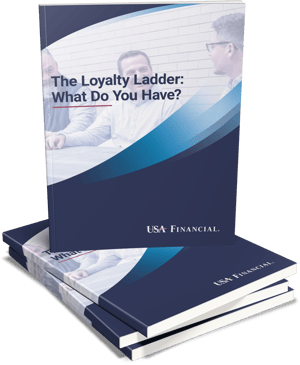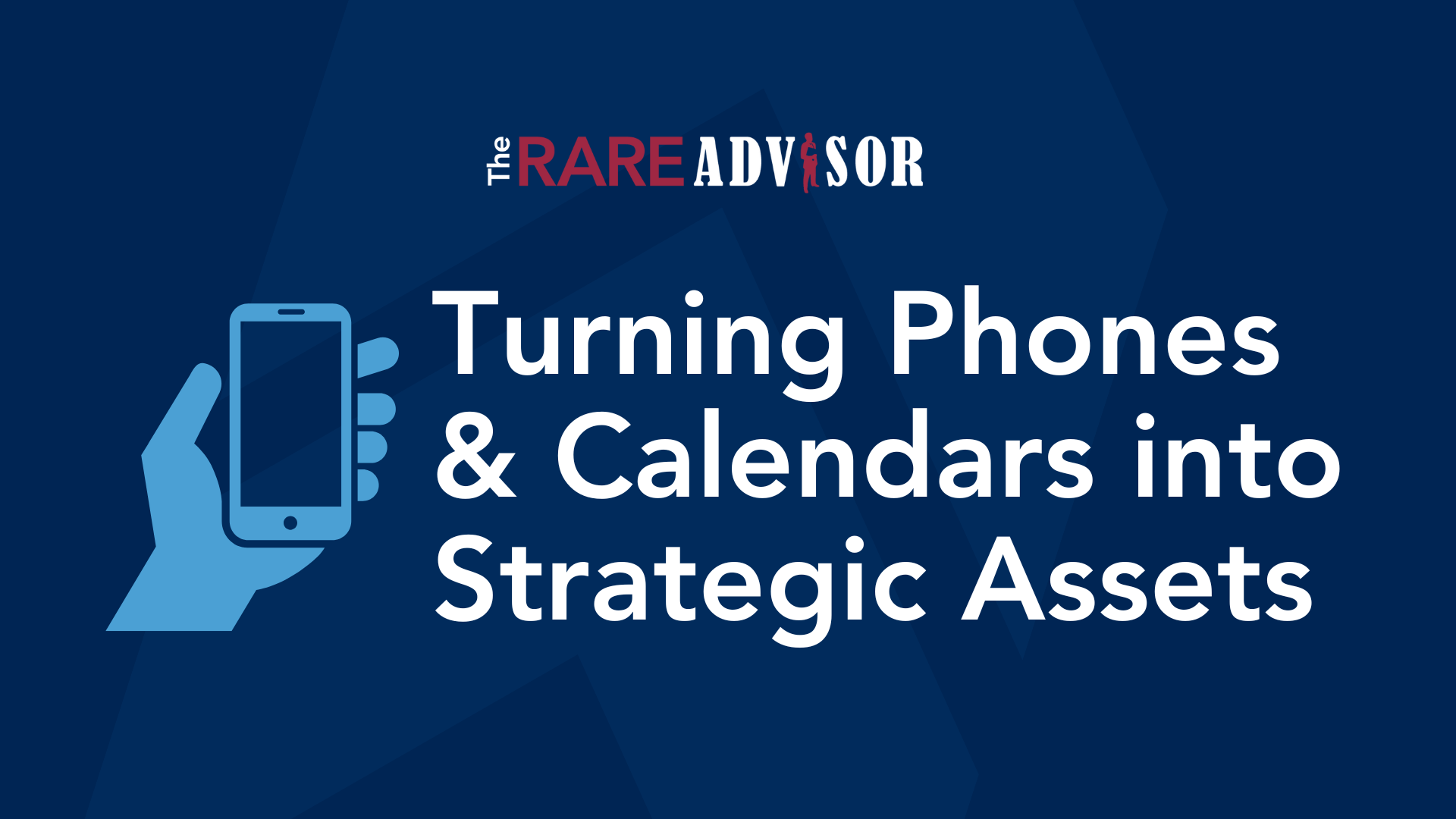The Loyalty Ladder: Turn Clients into Advocates

Before we can start an effective coaching and consulting process with an advisor or team, it helps to understand where certain opportunities might exist; we call those “Opportunity Gaps”.

While the list of consulting programs we provide at USA Financial is long, we’ll focus here on how we help advisors identify what is really happening with the people they serve.
This is the first of two revealing exercises; this one called The Loyalty Ladder - or more fundamentally, “What Do You Have?” For many advisors and teams we engage with, understanding what and who actually exists in their 50, 100, 200, 500 etc. households they serve is a confounding mystery. A mystery that often contains immense opportunity. Not just for generating revenue or getting introductions, but for creating that most valuable asset - more time! – as well as a much more efficient team and process.
In order to maximize this particular Opportunity Gap it is important for us to ask our advisors "What do you have?" Or, asked another way, "Who are you working with?" That is why when we start working with an advisor or a team we never ask, “how many clients do you have?” It's an inappropriate question. What we ask instead is “how many households do you serve?” We start with that larger number and then break it down into three categories: Customers, Clients, and Advocates.
The first group, Customers, we describe as people that are doing business with you, but we also know they're doing business elsewhere. It may be that they do their wealth management with you but perhaps they’re doing their risk management and insurance someplace else, or it could be that they have a second advisor, just to mention a couple of examples. Obviously, we’re not downplaying the revenue that these folks generate, but typically these relationships are a product of timing and/or convenience and they rarely progress further with your practice.
Want to keep reading?
Related Posts

Access by Design: Turning Phones and Calendars into Strategic Assets
In this episode of The RARE Advisor, host Aaron Grady and practice management consultant Allan Oehrlein continue their discussion on time allocation by exploring what comes next: operationalizing structure across the entire advisory team. They break down why the phone is the “front door” to the firm and the calendar is the “engine room,” and how elite practices use standardized phone scripts, the strategic power of the word “unavailable,” intentional scheduling rules, and team empowerment to build consistency, capacity, and trust. Aaron and Allan outline how designed access—not unlimited access—creates scalability and a stronger client experience, while reducing reactivity, burnout, and advisor bottlenecks. They also offer practical challenges advisors can implement immediately to redesign their phone and scheduling processes in ways that elevate both team culture and enterprise value.

What’s Trending: The Love, Fear, and FOMO Driving February Markets
In this episode of the Trending Report, host Tyler Krzciok explores why February is the month when even the most disciplined investment intentions start to slip. After a confident and structured January, many investors begin questioning their strategy as headlines intensify, markets wiggle, and hot themes take over the conversation. Tyler breaks down why old habits reappear, how emotions like love, fear, and FOMO quietly steer decisions, and why formula‑driven processes help clients stay grounded when impulse tries to take over. If you're helping clients maintain clarity in a noisy environment, this episode shows how strong frameworks—not strong feelings—keep investors on track.

Growing Your Advisory Business: A Roadmap to Building AUM
The decade’s-long trend toward fee-based advisory business was validated as financial professionals faced the global pandemic in 2020. While professionals relying on new clients for revenue via transactional business found themselves in a predicament as the country went on lockdown and people stayed home, those with recurring revenue streams from assets under management (AUM) were able to navigate the choppy waters with far less revenue fluctuation in their businesses.

Access by Design: Turning Phones and Calendars into Strategic Assets
In this episode of The RARE Advisor, host Aaron Grady and practice management consultant Allan Oehrlein continue their discussion on time allocation by exploring what comes next: operationalizing structure across the entire advisory team. They break down why the phone is the “front door” to the firm and the calendar is the “engine room,” and how elite practices use standardized phone scripts, the strategic power of the word “unavailable,” intentional scheduling rules, and team empowerment to build consistency, capacity, and trust. Aaron and Allan outline how designed access—not unlimited access—creates scalability and a stronger client experience, while reducing reactivity, burnout, and advisor bottlenecks. They also offer practical challenges advisors can implement immediately to redesign their phone and scheduling processes in ways that elevate both team culture and enterprise value.

What’s Trending: The Love, Fear, and FOMO Driving February Markets
In this episode of the Trending Report, host Tyler Krzciok explores why February is the month when even the most disciplined investment intentions start to slip. After a confident and structured January, many investors begin questioning their strategy as headlines intensify, markets wiggle, and hot themes take over the conversation. Tyler breaks down why old habits reappear, how emotions like love, fear, and FOMO quietly steer decisions, and why formula‑driven processes help clients stay grounded when impulse tries to take over. If you're helping clients maintain clarity in a noisy environment, this episode shows how strong frameworks—not strong feelings—keep investors on track.

Growing Your Advisory Business: A Roadmap to Building AUM
The decade’s-long trend toward fee-based advisory business was validated as financial professionals faced the global pandemic in 2020. While professionals relying on new clients for revenue via transactional business found themselves in a predicament as the country went on lockdown and people stayed home, those with recurring revenue streams from assets under management (AUM) were able to navigate the choppy waters with far less revenue fluctuation in their businesses.

